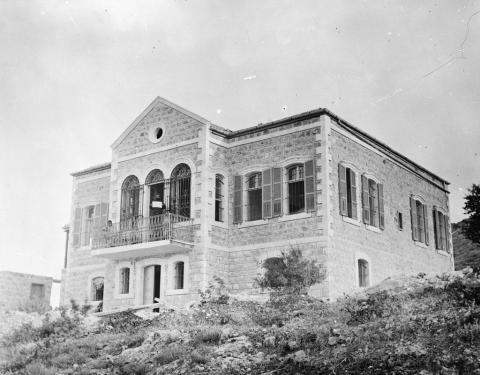I was asked to say a few words to the dear South African believers who are here today. I thought I could tell you about a tablet, a very short tablet, revealed by ‘Abdu’l-Bahá. The contents of this Tablet are as follows: the Master says the relationships of the believers to the Cause of God are of two kinds. One kind is like the relationship of the flower to the garden. The other relationship is that of the ray of the sun to the sun. "I hope", Master says, "that your relationship will be of the second kind". And that is the end of the Tablet! Now, I have been thinking about this Tablet, and I have been wondering why ‘Abdu’l-Bahá says that he prefers the second kind to the first kind. There is nothing wrong in being a flower in the garden of Bahá’u’lláh. In fact, we have prayers, "O God, make me a flower in Thy garden". Why is it that ‘Abdu’l-Bahá prefers the other type, which is the ray of the sun? The sun is the Cause of God, and the ray emanates from it. So I am offering my views, my humble views, about this beautiful, simple tablet of ‘Abdu’l-Bahá. I thought like this, I said, OK, we have a flower in a garden, the flower says, "I like this garden", in other words, we say, we like the Cause. "I like this garden, I grow in this garden, I am proud of my garden, I am named after this garden". (I am a Bahá’í) OK, this is all good. We take the ray of the sun. The ray says exactly all these things, he says, "I am from the sun, I am proud of the sun, I depend everything, all my life on the sun," etc, etc, exactly the same thing. But, if you bring one ray and you bring a second ray, what happens? The two rays become one. But if you bring one flower and you bring another flower, they remain two flowers. If on an Assembly or a Bahá’í committee, you bring nine rays and bring them together, they become one strong united ray. But if you bring nine flowers and bring them together, they are a beautiful bouquet, a beautiful flower arrangement, but they are nine different flowers, and everyone, if we credit the flower with some thinking, some intelligence and some ego, the flower will say, "Really, I don't want to say, but I think I'm better than the others. I think I'm more beautiful, I think I have a more beautiful scent. I don't want to talk about it, but... never mind..." This is what the flower will do. Why, because of the ego. The ego is inside. And believe me, this animal ego is in all of us. If we have 20 people in this room, there are 20 egos, no exception. And this ego will be with us till the very last breath. When we go to the next world, we separate, we say goodbye. But until that day, it is with us, it suggests things to us, it deviates us from the right path, because that is the animal in us, it wants everything for itself. OK, let’s go to the ray now. The ray says, "I have no name, it doesn't matter. I don't have colour, it doesn't matter. I am from the sun. My job is to be faithful and to carry the light of the sun, the heat of the sun. That is my duty. And I am doing it." It is so pure that if you take a chair, and you go outside where there is the sun, you say, "I am sitting in the sun." Ha! You are not sitting in the sun. The sun is up there! But the ray is so faithful, so pure, that it carries all the qualities of the sun, in a pure way, so much so that you say I am sitting in the sun. Now, another difference is that the flower is on the receiving end." Soil, give me good soil, water, give me good water, light and sun, I want more light." It's all the time receiving. "Give me." What does the ray do? It doesn't want anything, the ray gives, it helps the flowers to grow. Big difference between the two!! So, that is why I think ‘Abdu’l-Bahá says, "It's good to be a flower in the garden, but better still is to be a ray of the sun. This is my first choice for you, this is what I prefer you to be. To be a ray from the sun, so that you give to others, you are a way of helping others. You are not thinking of yourself. You are thinking of others, to assist others all the time, to give the light, to give the heat, the warmth."
